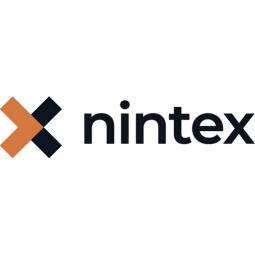Download PDF
Streamlining Healthcare Operations: Adventist Health System's Success with Nintex Platform
Technology Category
- Platform as a Service (PaaS) - Application Development Platforms
- Robots - Wheeled Robots
Applicable Industries
- Equipment & Machinery
- Healthcare & Hospitals
Applicable Functions
- Facility Management
- Procurement
Use Cases
- Personnel Tracking & Monitoring
- Time Sensitive Networking
Services
- Hardware Design & Engineering Services
- System Integration
The Challenge
Adventist Health System, a healthcare organization with over 78,000 employees across 44 facilities in 10 states, was facing a significant challenge in managing their ordering processes. The system, which was primarily based on verbal and email orders, was proving to be inefficient and time-consuming. The IT department was spending excessive time handling a mix of paper form requests, verbal requests, and a flurry of follow-up emails for new equipment and business card requests. The process was not only cumbersome but also prone to errors and delays. The inaccuracies in the system often led to late deliveries of computer equipment and inaccuracies in business cards. The challenge was to find a solution that could automate this process, reduce errors, and free up the IT staff to focus on other critical tasks.
About The Customer
Adventist Health System is a healthcare organization based in the United States. The organization is committed to providing Christian healthcare and operates 44 facilities across 10 states. With over 78,000 employees, Adventist Health System serves 4.7 million patients annually. The IT department of the organization is responsible for maintaining clinical and business systems that provide a secure, effective, and integrated patient care delivery system across its many hospital campuses. Ensuring that new staff have the necessary computer hardware, software, and business cards is a critical task for the organization.
The Solution
The solution came in the form of the Nintex Platform for SharePoint. After exploring various options, the organization decided to adopt Nintex due to its seamless integration with SharePoint. The platform allowed non-tech users to easily initiate their orders by clicking a form on the SharePoint ribbon. Once a staff member completed the online business card request form built on the Nintex Platform, SharePoint would send an email and start the approval process for the request. The platform also provided a WYSIWYG display that allowed users to view their business card exactly as it would be printed, enabling them to correct mistakes before placing the order. Additionally, when a manager completed an online form for a new hire or an existing employee, the workflow would trigger IT staff to reallocate or order the requested computer hardware and software. The platform also allowed staff to access the system from home and open pages within its web view from their native employee mobile app.
Operational Impact
Quantitative Benefit
Related Case Studies.

Case Study
Smart Water Filtration Systems
Before working with Ayla Networks, Ozner was already using cloud connectivity to identify and solve water-filtration system malfunctions as well as to monitor filter cartridges for replacements.But, in June 2015, Ozner executives talked with Ayla about how the company might further improve its water systems with IoT technology. They liked what they heard from Ayla, but the executives needed to be sure that Ayla’s Agile IoT Platform provided the security and reliability Ozner required.

Case Study
IoT enabled Fleet Management with MindSphere
In view of growing competition, Gämmerler had a strong need to remain competitive via process optimization, reliability and gentle handling of printed products, even at highest press speeds. In addition, a digitalization initiative also included developing a key differentiation via data-driven services offers.

Case Study
Predictive Maintenance for Industrial Chillers
For global leaders in the industrial chiller manufacturing, reliability of the entire production process is of the utmost importance. Chillers are refrigeration systems that produce ice water to provide cooling for a process or industrial application. One of those leaders sought a way to respond to asset performance issues, even before they occur. The intelligence to guarantee maximum reliability of cooling devices is embedded (pre-alarming). A pre-alarming phase means that the cooling device still works, but symptoms may appear, telling manufacturers that a failure is likely to occur in the near future. Chillers who are not internet connected at that moment, provide little insight in this pre-alarming phase.

Case Study
Premium Appliance Producer Innovates with Internet of Everything
Sub-Zero faced the largest product launch in the company’s history:It wanted to launch 60 new products as scheduled while simultaneously opening a new “greenfield” production facility, yet still adhering to stringent quality requirements and manage issues from new supply-chain partners. A the same time, it wanted to increase staff productivity time and collaboration while reducing travel and costs.

Case Study
Integration of PLC with IoT for Bosch Rexroth
The application arises from the need to monitor and anticipate the problems of one or more machines managed by a PLC. These problems, often resulting from the accumulation over time of small discrepancies, require, when they occur, ex post technical operations maintenance.

Case Study
Robot Saves Money and Time for US Custom Molding Company
Injection Technology (Itech) is a custom molder for a variety of clients that require precision plastic parts for such products as electric meter covers, dental appliance cases and spools. With 95 employees operating 23 molding machines in a 30,000 square foot plant, Itech wanted to reduce man hours and increase efficiency.





